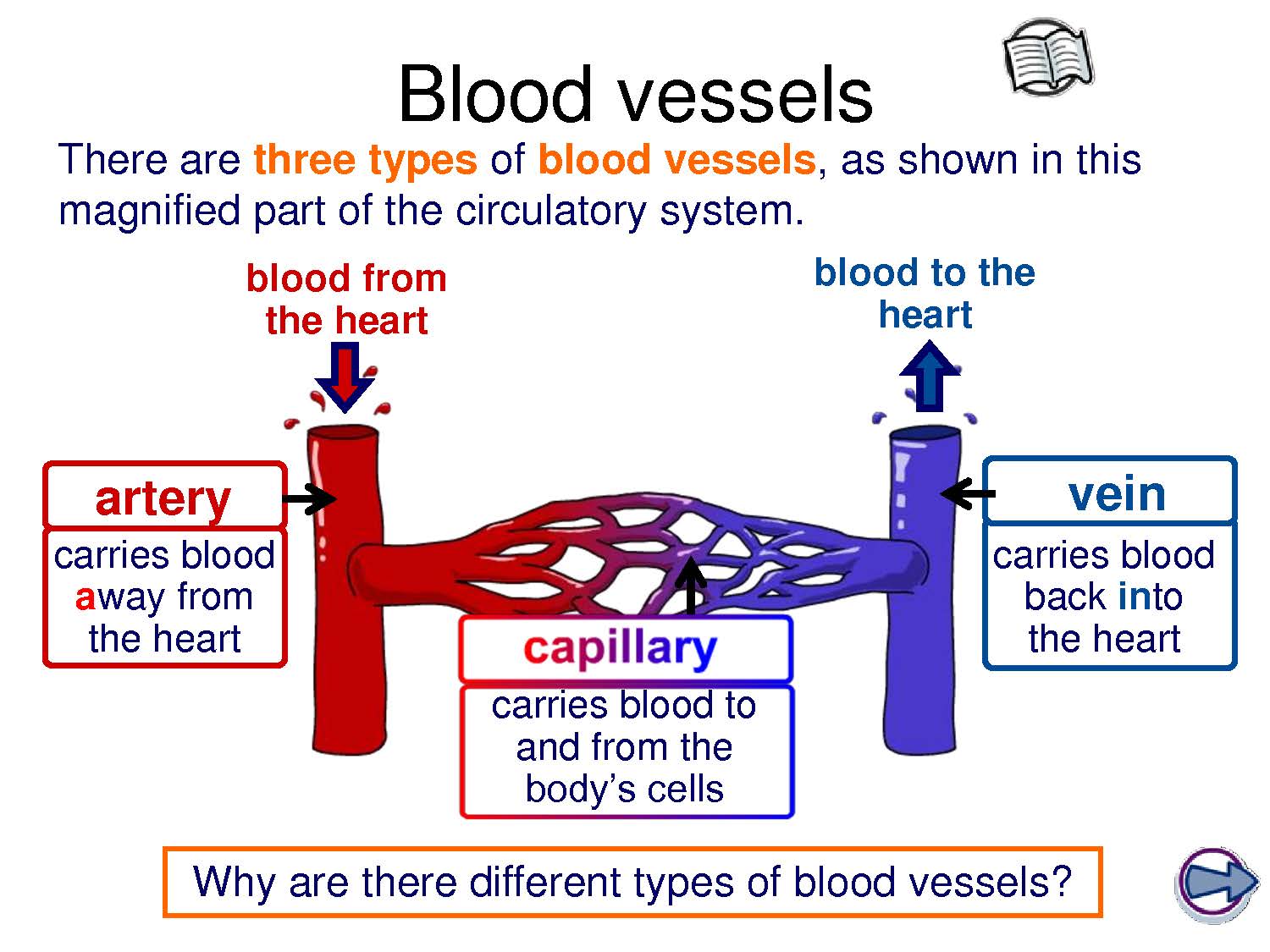Understanding The Vessels That Carry Blood Away From The Heart
The circulatory system is a complex network responsible for transporting blood throughout the body, ensuring that essential nutrients and oxygen reach every cell. Among the most crucial components of this system are the vessels that carry blood away from the heart, known as arteries. These vessels play a vital role in maintaining the overall health and function of our body. In this article, we will explore the structure and function of these arteries, their significance in the circulatory system, and how they affect our well-being.
To understand the importance of the vessels that carry blood away from the heart, it is essential to grasp how blood circulation works. The heart acts as a pump, pushing oxygen-rich blood into the arteries, which then distribute it throughout the body. This process is not only vital for delivering nutrients to tissues but also for removing waste products. When these vessels are healthy, they ensure efficient blood flow, which is crucial for sustaining life.
However, various factors can impact the health of these vessels, leading to conditions such as atherosclerosis, hypertension, and other cardiovascular diseases. Understanding the anatomy and physiology of the arteries, alongside the risks associated with their dysfunction, can empower individuals to take proactive steps in maintaining their cardiovascular health. Let’s dive deeper into the vessels that carry blood away from the heart and uncover their significance in our daily lives.
What Are the Major Arteries in the Human Body?
The human body contains several major arteries that serve as the primary vessels carrying blood away from the heart. Each artery has its specific function and route, delivering blood to various organs and tissues. Here are some of the most significant arteries:
- Aorta: The largest artery in the body, responsible for distributing oxygenated blood from the heart to the rest of the body.
- Pulmonary Arteries: These arteries carry deoxygenated blood from the heart to the lungs for oxygenation.
- Coronary Arteries: These arteries supply blood to the heart muscle itself, ensuring it receives the oxygen and nutrients it needs to function effectively.
- Carotid Arteries: Located in the neck, these arteries supply blood to the brain, neck, and face.
How Do Arteries Function?
The arteries that carry blood away from the heart have unique structural features that enable them to perform their functions effectively. Arteries are composed of three layers:
- Intima: The innermost layer, which provides a smooth surface for blood flow.
- Media: The middle layer, made of smooth muscle and elastic fibers, allowing arteries to expand and contract as blood flows through.
- Adventitia: The outer layer, providing structural support and protecting the artery.
These features allow arteries to withstand high pressure from the blood pumped by the heart, ensuring efficient circulation throughout the body.
Why Are the Vessels That Carry Blood Away from the Heart Important?
The vessels that carry blood away from the heart are essential for several reasons:
- Nutrient Delivery: They transport oxygen and nutrients to tissues, supporting cellular function and health.
- Waste Removal: Arteries play a role in removing waste products from tissues, helping to maintain homeostasis.
- Regulation of Blood Pressure: The smooth muscle in artery walls helps regulate blood pressure by constricting or dilating as needed.
- Protection Against Disease: Healthy arteries reduce the risk of cardiovascular diseases, ensuring a longer and healthier life.
What Are the Risks to the Vessels That Carry Blood Away from the Heart?
While arteries are vital for our health, various factors can jeopardize their integrity, leading to serious health issues. Some common risks include:
- High Blood Pressure: This condition can damage arteries over time, making them less elastic and more prone to blockages.
- High Cholesterol: Elevated cholesterol levels can lead to plaque buildup in the arteries, narrowing them and restricting blood flow.
- Diabetes: This condition can damage blood vessels and increase the risk of cardiovascular disease.
- Smoking: Tobacco use is a significant risk factor for arterial damage and cardiovascular issues.
How Can We Maintain Healthy Arteries?
Maintaining healthy arteries is crucial for overall well-being. Here are some effective strategies:
- Healthy Diet: Consume a balanced diet rich in fruits, vegetables, whole grains, and healthy fats.
- Regular Exercise: Engage in physical activity to improve cardiovascular health and maintain a healthy weight.
- Avoid Smoking: Quitting smoking can significantly reduce the risk of arterial damage.
- Regular Health Check-ups: Monitor blood pressure, cholesterol levels, and blood sugar to catch potential issues early.
What Are the Symptoms of Arterial Disease?
Understanding the symptoms of arterial disease can lead to early diagnosis and treatment. Common symptoms include:
- Chest Pain: Often a sign of coronary artery disease.
- Shortness of Breath: Can indicate reduced blood flow to the heart or lungs.
- Weakness or Numbness: May occur in the limbs, indicating reduced blood flow.
- Coldness in Extremities: Can signify poor circulation due to arterial blockages.
Conclusion: The Lifelines of Our Body
The vessels that carry blood away from the heart are truly the lifelines of our body. They play a crucial role in delivering oxygen and nutrients to every part of our system while ensuring that waste products are efficiently removed. Understanding their function, risks, and how to maintain their health can empower individuals to take charge of their cardiovascular health. By making informed lifestyle choices and being aware of the symptoms of arterial disease, we can work towards a healthier future, free from the burdens of cardiovascular ailments.
Unveiling The Life And Career Of Chin Ho Kelley
Exploring The Depths Of Passive Learning: Real-Life Examples
Troubleshooting Your Toshiba TV That Won't Turn Off

Blood Vessels That Carry Blood Away From the Heart Healthfully

SCIENCE

PPT 7.4 Blood Vessels Arteries arteries carry blood away from the heart PowerPoint